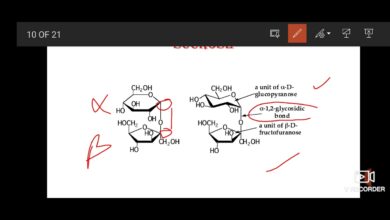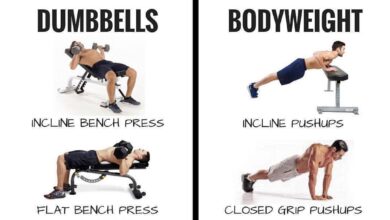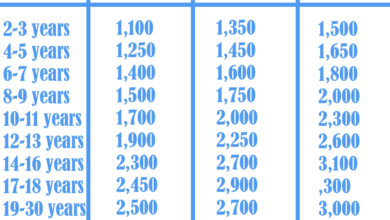
5 Common Weight Loss Hacks Can Backfire
5 Common Weight Loss Hacks Can Backfire: We all want to find the easiest and fastest way to shed those extra pounds, and weight loss “hacks” often seem like the perfect solution. But the truth is, many of these quick fixes can actually backfire, leaving you feeling frustrated and potentially harming your health.
From fad diets promising miraculous results to extreme exercise routines that leave you exhausted, these shortcuts often lead to unintended consequences. While the allure of quick results is tempting, it’s crucial to understand the potential downsides and prioritize sustainable practices for lasting weight management.
In this blog post, we’ll delve into five common weight loss hacks that can backfire, exploring the risks and why it’s essential to adopt a balanced and healthy approach to weight loss. We’ll also discuss the importance of seeking professional guidance and cultivating a positive mindset to achieve sustainable and healthy results.
The Backfire Effect

Weight loss hacks, while tempting, can sometimes lead to unintended consequences that sabotage your efforts. The pursuit of quick fixes might backfire, resulting in nutritional deficiencies, metabolic slowdown, and even rebound weight gain. It’s crucial to understand these potential downsides before embarking on any weight loss journey.
Potential Negative Outcomes of Common Weight Loss Hacks
The allure of quick weight loss can be deceptive, as many hacks promise rapid results without considering the long-term consequences. These shortcuts often involve drastic dietary restrictions, excessive exercise, or the use of supplements, which can have unintended negative effects on your body.
- Nutritional Deficiencies:Extreme diets often eliminate entire food groups, leading to a lack of essential vitamins and minerals. This can weaken your immune system, impair energy levels, and contribute to various health problems.
- Metabolic Slowdown:Crash dieting can trigger your body to enter “starvation mode,” slowing down your metabolism to conserve energy. This makes it harder to lose weight in the long run and can lead to weight gain once you resume normal eating habits.
- Rebound Weight Gain:The rapid weight loss achieved through drastic measures is often temporary. When you return to your regular diet, your body may regain the lost weight, and even more, due to the metabolic slowdown.
- Hormonal Imbalances:Some weight loss hacks can disrupt hormonal balance, leading to fatigue, mood swings, and irregular periods.
Risks Associated with Common Weight Loss Hacks
Each weight loss hack carries its own set of risks, depending on the specific approach. Understanding these risks is crucial for making informed decisions about your weight loss journey.
- Dehydration:Many weight loss hacks, especially those involving excessive sweating or diuretics, can lead to dehydration, which can cause fatigue, headaches, and dizziness.
- Muscle Loss:Crash diets and excessive exercise can lead to muscle loss, which reduces your metabolism and makes it harder to maintain a healthy weight.
- Digestive Issues:Some weight loss supplements can cause digestive problems like bloating, constipation, and diarrhea.
- Heart Problems:Certain weight loss hacks, such as extreme calorie restriction, can put extra strain on your heart, especially if you have underlying heart conditions.
Real-World Examples of Backfire Effects
There are numerous examples of weight loss hacks backfiring in real-world scenarios.
We’ve all heard those weight loss hacks that promise quick results, but often, they backfire in the long run. The key to sustainable success lies in understanding your body and its unique needs. This is where tracking data comes in.
By using a fitness tracker or journaling your food intake, you can gain valuable insights into your patterns and adjust your approach accordingly. Check out these 3 ways to use tracked data to meet your goals for a more personalized and effective weight loss journey.
Remember, lasting change is about making informed decisions based on your own body’s signals, not just relying on fleeting trends.
- The “Cabbage Soup Diet”:This diet involves consuming only cabbage soup for several days, leading to rapid weight loss due to water loss. However, the lack of essential nutrients can cause weakness, fatigue, and rebound weight gain.
- The “Grapefruit Diet”:This diet promotes eating grapefruit before meals to boost metabolism. However, grapefruit can interact with certain medications and may not have a significant impact on weight loss.
- “Detox” Teas and Supplements:These products often promise rapid weight loss by flushing out toxins. However, they lack scientific evidence and can cause dehydration, nutrient deficiencies, and digestive issues.
The Importance of Sustainable Practices
The allure of quick weight loss solutions is undeniable, but often, these methods are unsustainable and can lead to yo-yo dieting and health complications. The key to achieving lasting weight loss and overall well-being lies in adopting sustainable practices that become part of your lifestyle.
The Benefits of a Balanced Diet, 5 common weight loss hacks can backfire
A balanced diet is a cornerstone of sustainable weight loss. It provides your body with the essential nutrients it needs to function optimally, while also helping you maintain a healthy weight.
It’s easy to get caught up in the hype of quick weight loss hacks, but remember, sustainable results come from consistent effort. Instead of relying on fad diets or extreme restrictions, focus on building healthy habits like regular exercise.
For those looking for convenient and effective workout options, check out the best virtual workouts ranked list for inspiration. With so many fantastic online programs available, finding a workout routine that fits your lifestyle and goals has never been easier.
Remember, a balanced approach that includes regular exercise and mindful eating is the key to long-term success.
- Focus on consuming a variety of nutrient-rich foods such as fruits, vegetables, whole grains, lean proteins, and healthy fats.
- Limit processed foods, sugary drinks, and unhealthy fats, which can contribute to weight gain and health problems.
- Listen to your body’s hunger and fullness cues, and eat when you’re truly hungry and stop when you’re satisfied.
The Importance of Regular Exercise
Regular physical activity is crucial for sustainable weight loss. It helps burn calories, improve muscle mass, and boost your metabolism.
You know those “5 common weight loss hacks” that seem too good to be true? Yeah, they often are. From calorie-counting apps that become obsessions to fitness trackers that turn into guilt trips, technology can be a double-edged sword.
To navigate this tech-driven world of weight loss, check out this article on technology dos and don’ts for weight loss to avoid falling into the trap of those “hacks” that ultimately backfire.
- Aim for at least 150 minutes of moderate-intensity aerobic activity or 75 minutes of vigorous-intensity aerobic activity per week.
- Incorporate strength training exercises into your routine at least twice a week to build muscle mass, which helps burn more calories even at rest.
- Find activities you enjoy, making exercise more sustainable and enjoyable.
The Power of Mindful Eating
Mindful eating is a practice that encourages you to pay attention to your food choices and eating habits. It involves being fully present while eating, savoring flavors, and recognizing your body’s hunger and fullness signals.
- Avoid distractions like television or phones while eating.
- Eat slowly and chew your food thoroughly.
- Listen to your body’s signals and stop eating when you feel satisfied, not overly full.
Comparing Quick Fixes to Sustainable Approaches
Quick weight loss fixes often involve drastic calorie restriction, extreme exercise regimens, or the use of supplements and fad diets. While these methods may lead to initial weight loss, they are rarely sustainable in the long term. The body often reacts to these extreme measures by slowing down its metabolism, leading to weight regain once the restrictive measures are lifted.
Moreover, these quick fixes can be detrimental to your health, leading to nutrient deficiencies, muscle loss, and other complications. Sustainable weight loss, on the other hand, emphasizes gradual changes in your lifestyle that are easier to maintain over time.
This approach focuses on incorporating healthy habits such as a balanced diet, regular exercise, and mindful eating into your daily routine. The benefits of sustainable weight loss extend beyond weight management, promoting overall health, improved energy levels, and enhanced well-being.
Seeking Professional Guidance: 5 Common Weight Loss Hacks Can Backfire
While there are many weight loss hacks circulating online, it’s crucial to understand that not all approaches are created equal, and some can even be detrimental to your health. Seeking professional guidance from a healthcare professional or registered dietitian is an essential step in your weight loss journey, ensuring safety and effectiveness.
The Importance of Professional Expertise
Consulting a healthcare professional or registered dietitian offers numerous benefits that go beyond simply providing a diet plan. These professionals possess the knowledge and experience to assess your individual needs, health history, and lifestyle factors, allowing them to develop a personalized plan that is safe and effective for you.
- Personalized Nutrition Plans:A registered dietitian can create a nutrition plan that aligns with your specific dietary needs, preferences, and health goals. This plan will incorporate a variety of nutrient-rich foods and help you make informed choices about your food intake.
- Tailored Exercise Programs:A healthcare professional can help you develop an exercise program that is suitable for your fitness level and health conditions. They can guide you on appropriate exercises, intensity, and frequency to ensure you’re working out safely and effectively.
- Monitoring Progress and Addressing Challenges:Regular consultations with a healthcare professional or registered dietitian allow them to monitor your progress, make adjustments to your plan as needed, and address any challenges you may encounter along the way.
Finding a Qualified Professional
Finding a qualified healthcare professional or registered dietitian is crucial for ensuring you receive evidence-based advice. Here are some tips:
- Check Credentials:Ensure the professional is licensed or registered in your state or country. You can verify their credentials through the relevant professional organizations.
- Seek Recommendations:Ask your doctor, friends, or family members for recommendations.
- Read Reviews:Online reviews can provide insights into other patients’ experiences with the professional.
- Schedule a Consultation:Before committing to a professional, schedule a consultation to discuss your needs and goals. This allows you to get a feel for their approach and ensure they are a good fit for you.
Final Conclusion
Remember, there’s no magic bullet for weight loss. Instead of chasing quick fixes that can backfire, focus on building healthy habits that support long-term well-being. Prioritize a balanced diet, regular exercise, and mindful eating. Seek professional guidance from a registered dietitian or healthcare provider to create a personalized plan that suits your needs and goals.
Above all, be patient, kind to yourself, and celebrate every step of your journey towards a healthier and happier you.






